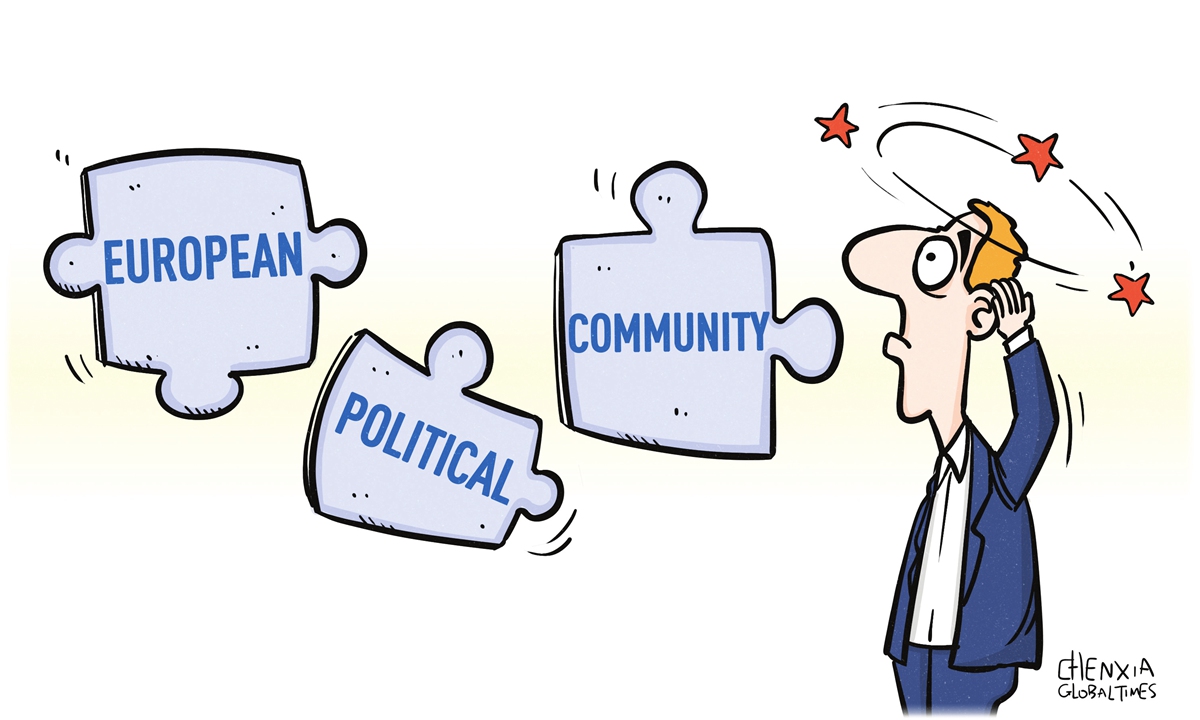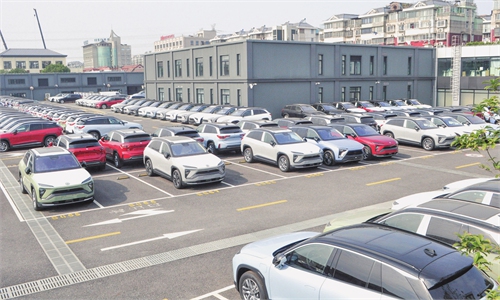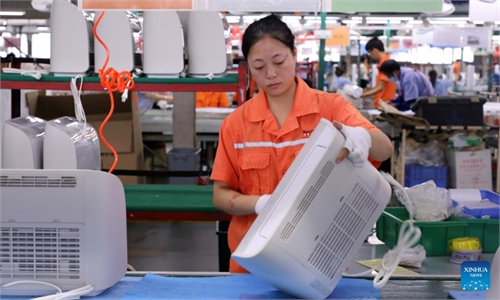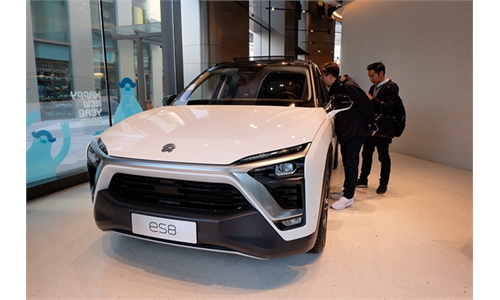
Illustration: Chen Xia/GT
The EU, or Europe? How can Europe's political, economic, security and cultural boundaries be unified? This is the eternal question for the continent. French diplomat Jean Monnet designed the predecessor of the European Community - The European Coal and Steel Community, which kick started the peace, unity and self-improvement process of the continent. He has thus been called "the Father of Europe."On May 9, French President Emmanuel Macron called for a "European Political Community (EPC)." On Thursday, the first summit of the EPC kicked off in Prague, the Czech capital. Leaders from 44 countries - the 27 EU members and 17 other European countries, participated at the summit. Some leaders voiced hope to find a "common position" and set common goals, including support for Ukraine, realizing lasting peace, energy security in Europe. Against the backdrop, people have been discussing the political paradoxes of the EPC.
To begin with, is the EPC a community of shared values or a community of shared destiny? The EU assumes that it is the spokesperson for the whole of Europe, others will either join the EU sooner or later, or follow the EU's suit. A European media outlet recently wrote that "the EPC should be a community not of values, but of fate."
The second paradox is about whether it should expand or simply make partnerships? The Brussels-based think tank Bruegel published a report on September 22, entitled, "Enlarging and deepening: giving substance to the European Political Community." It states that "the EPC would not be, and should not be, regarded as a substitute for EU accession, but should be designed in such a way that it can work as an accelerator. For countries not seeking to join the EU, it will provide a political framework for strengthening structural cooperation with the EU.
The EPC could start as a soft law agreement between states and the EU.
The EPC is a revision of normative power positioning, no longer pursuing EU enlargement but building partnerships, which is more pragmatic and can show the unity of European countries. As Macron said at the summit, the meeting sent a signal of unity to Ukraine. Leaders who had not met for many years were able to meet again and try to resolve some outstanding disputes via bilateral talks. He also pointed out that civil war is a stubborn problem in Europe, and through the establishment of an EPC, we will try to overcome it. At their meeting in Prague, Liz Truss and Macron also agreed to hold a bilateral summit in France in 2023.
Third, it is challenging to deepen European integration now. A number of participating European countries claimed that the EPC should not be a "community" but an informal "forum". As early as the eve of the summit in Prague, Olaf Scholz, the chancellor of Germany, underlined that the EPC would be a useful forum that would bring together political leaders more often to exchange views on key issues without the pressure of having to agree on an official communique.
Indeed, it is difficult to recreate Europe by realizing the unified borders of Europe's politics, economy, culture, and security. Instead of describing the EPC as a political community, it would be about the European order. Josep Borrell, the High Representative of the European Union for Foreign Affairs and Security Policy, recently expressed his willingness to"build a wider European political and security order with all countries willing to abide by common principles."Russia remains a geographical neighbor and a member of the international system, but now we have to build a European political community without Russia.
How far can a political community go without Russia? It could be a watershed moment in the process of European unity. There is a high probability that European unity is doing addition and subtraction rather than multiplication. They create political community outside the existing organizations such as EU, NATO, and OSCE to avoid division.
The author is Jean Monnet Chair professor, vice president of the Academy of Xi Jinping Thought on Socialism with Chinese Characteristics for a New Era at Renmin University of China.



